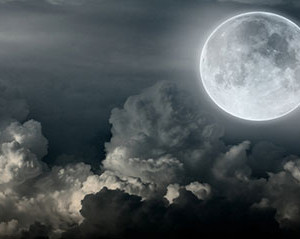- Could Your Grocery Store Meat Be Causing Recurring UTIs?
- Are You Making This Expensive Thermostat Error This Winter?
- Recognizing the Signs of Hypothyroidism
- 10 Strategies to Overcome Insomnia
- Could Artificial Sweeteners Be Aging the Brain Faster?
- Techniques for Soothing Your Nervous System
- Does the Water in Your House Smell Funny? Here’s Why
- Can a Daily Dose of Apple Cider Vinegar Actually Aid Weight Loss?
- 6 Health Beverages That Can Actually Spike Your Blood Sugar
- Treatment Options for Social Anxiety Disorder
Are you on a warewolf sleep cycle?

A full moon may not bring out the werewolves, as folklore has it, but it may bring out the insomniacs.
According to a small, new study, people who complain about poor sleep when a fully illuminated moon fills the nighttime sky may be onto something.
Researchers asked 33 volunteers to sleep in a lab so they could monitor their brain patterns, eye movements and hormone secretions.
The data showed that around the full moon, brain activity related to deep sleep dropped 30 percent.
People took five minutes longer to fall asleep and they slept 20 minutes less time overall.
Participants said they didn’t just feel rested with the full moon rising… and their bodies showed it, producing lower levels of melatonin, a hormone that helps regular sleep-wake cycles.
The researchers say they’d like to look further into how the lunar rhythm may affect us…to see if it has any power over our moods or cognitive performance.
I’m Dr. Cindy Haines of HealthDay TV… with the latest breakthroughs from the world of medicine.










